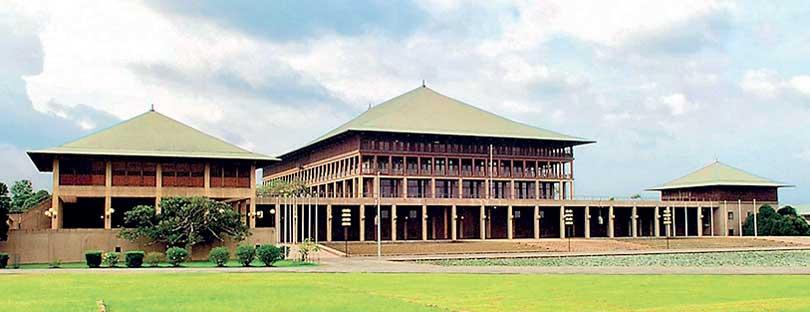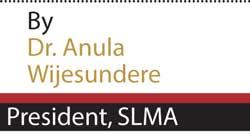
 The Ministry of Finance and Mass Media has called upon all stakeholders to make proposals for the budget of 2019 as a contribution to ensure the introduction of a successful budget to build a strong economy and an enriched country.
The Ministry of Finance and Mass Media has called upon all stakeholders to make proposals for the budget of 2019 as a contribution to ensure the introduction of a successful budget to build a strong economy and an enriched country.
A country can most certainly be enriched by the good health status and wellbeing of its citizens. In this context, the SLMA being the apex of all academic and professional medical association of Sri Lanka strongly urges you to refrain from granting any tax concessions to the alcohol industry.
We wish to express our concern in relation to the significant reduction in taxation of beer, which was implemented through the budget of 2017. We, therefore, request the Ministry of Finance to increase the taxation of beer, at least to the levels before this tax reduction was implemented.
According to the STEPS Survey 2015 of the Ministry of Health and WHO, the current use of alcohol among males over 15 years was 35% and less than 1% among females
We also request that there should be no relaxation of alcohol retailing regulations at all in the budget of 2019.
The reasons for the above statement are as follows:
- It is firmly established that decreasing the prices of alcohol products will increase its consumption. It is also well established that liberalizing sales (increasing the number of outlets and relaxing retail restrictions) will increase alcohol consumption. Increasing overall consumption will increase all harmful effects of alcohol use: eg:- accidents, suicide, domestic and other forms of violence and illnesses (cirrhosis, strokes, cancers, heart attacks, etc.).
Increasing overall consumption will increase all harmful effects of alcohol use: eg:- accidents, suicide, and illnesses (cirrhosis, strokes, cancers, heart attacks, etc.)
- Many false arguments have been raised directly and indirectly by the alcohol industry which firmly opposes increasing taxation. An increase in taxes and simultaneously in the price of alcohol, will increase the Government revenue and at the same time reduce alcohol consumption. Such a measure will enable the government to collect more revenue and simultaneously reduce the enormous social, economic and health consequences of alcohol consumption.
- The alcohol industry uses the convenient slogan of illicit alcohol or “kasippu” to mislead successive governments to stop this effective policy measure of increasing the price of alcohol’. The illicit trade should be dealt with by appropriate law enforcement (Police and Excise Departments) and not by the price reduction of alcohol. There are no examples where illicit alcohol production was reduced because of the reduced price of licit alcohol. Estimates also show that the production of illicit alcohol has decreased in Sri Lanka in the recent past.
- The majority of the adult population in Sri Lanka does not indulge in alcohol. According to the STEPS Survey 2015 of the Ministry of Health and WHO, the current use of alcohol among males over 15 years was 35% and less than 1% among females. Presently, over 80% of the population over 15 years in Sri Lanka are not users of alcohol. We wish to reiterate that any policy measures taken on alcohol should ensure that this vast “non- drinking” population is not pushed towards the use of alcohol. Prices and availability are two major forces of such consumption.
- If the spirits users are to be shifted to beer, the price difference between these types of alcohol should be increased. In the Sri Lankan context, what should be done is to increase the price of spirits and not decrease the price of beer.
- The WHO unequivocally recommends that alcohol prices should be increased to reduce consumption. Contrary to popular belief, all alcohol users are not “addicts” - less than 10% of all alcohol users are dependent. Most “heavy” drinkers too are not dependent. The WHO states that increasing prices of alcohol will even reduce the use among heavy drinkers.
- The poorer segments of society who spend about 1/3 of their income on smoking and alcohol would reduce their consumption of these substances when the prices of these are increased. This would help to reduce health inequality and poverty.
The illicit trade should be dealt with by appropriate law enforcement (Police and Excise Departments) and not by the price reduction of alcohol
We sincerely hope that the Ministry of Finance will take these facts into consideration and refrain from reducing the price of alcohol in the budget proposals of 2019.

 The Ministry of Finance and Mass Media has called upon all stakeholders to make proposals for the budget of 2019 as a contribution to ensure the introduction of a successful budget to build a strong economy and an enriched country.
The Ministry of Finance and Mass Media has called upon all stakeholders to make proposals for the budget of 2019 as a contribution to ensure the introduction of a successful budget to build a strong economy and an enriched country.